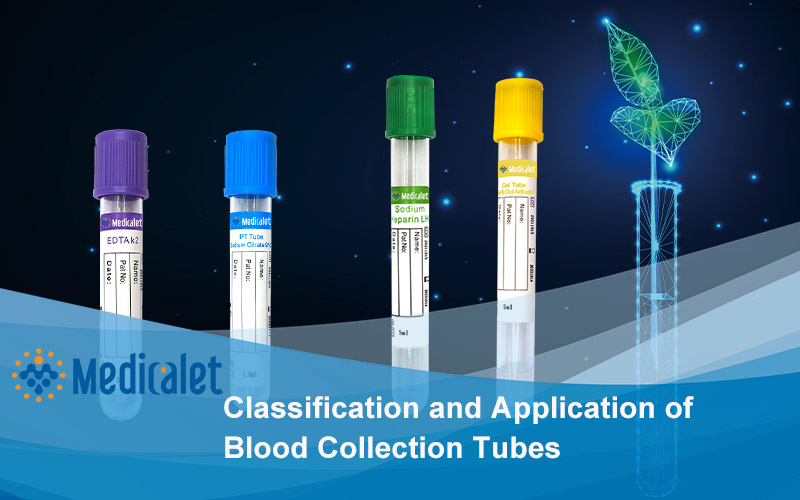
Classification and Application of Blood Collection Tubes
1. Split Blood Collection Tubes
Split blood collection tubes are disposable blood collection tubes commonly used in clinics, which are often used in combination with disposable blood collection vessels.
The structure of the utility model is that a blood collection tube is connected to a needle base at the tail end of a hose of an intravenous infusion needle. When in use, the blood collection tube needs to be rotated and fixed at the front end of the outer cylinder of the needle holder, and the hand-held venipuncture is used to puncture the vein. After success, the vacuum blood collection vessel is inserted into the cavity at the back end of the needle holder, so that the edge of the blood collection tube passes through the blood blocking sleeve and the rubber plug of the vacuum tube, and the blood is inhaled into the blood collection vessel under the action of negative pressure.
The structure of the pen type blood collection tubes is a through needle tube with sharp edges at both ends. The middle and lower parts of the needle tube are fixed on the needle base. The front end is called the venipuncture needle, and the back end is called the blood collection tube. The surface of the blood collecting needle is covered with a blood blocking sleeve, and the two ends of the needle tube are covered with a protective sleeve. In the clinic, it is usually used together with a needle holder and disposable blood collection vessel to collect blood.
When in use, the blood collection tube is rotated and fixed at the front end of the outer cylinder of the needle holder to perform venipuncture. After success, the vacuum blood collection vessel is inserted into the cavity at the back end of the needle holder, so that the back edge of the blood collection tube passes through the blood blocking sleeve and penetrates into the vacuum tube rubber plug, and the blood is pumped into the blood collection vessel under the action of negative pressure.
3. Arterial Blood Collection Tubes
Arterial blood collection is the basis for accurate diagnosis of hypoxemia.
The amount of blood can be preset according to the need of the test before blood collection, so that the operation of arterial puncture is safe and simple, and the waste of blood samples can be avoided. The unique automatic exhaust device is formed by the hole stone design at the back end of the syringe, which can quickly and safely discharge the residual gas in the syringe under the action of arterial pressure, so as to avoid the interference of dead space gas on the detection results of arterial blood gas.
